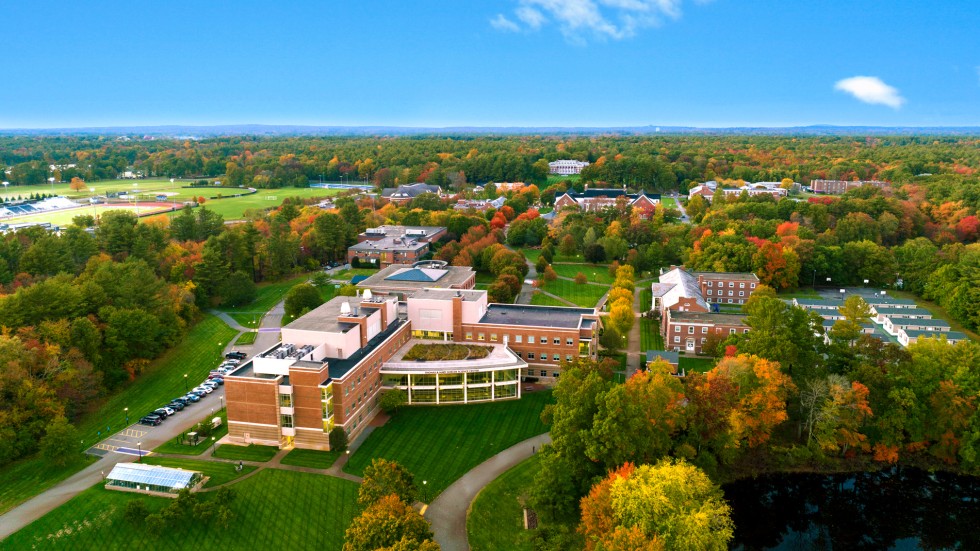2021-2022 Hill Book (Class of 2025) [ARCHIVED HILL BOOK]
Environmental Sciences and Studies
|
|
Program Director:
Environmental Sciences and Studies Steering Committee:
N. Block, Biology
K. Burkholder, Environmental Sciences and Studies
C. Ives, Religious Studies
E. LeFlore, Teaching Post-Doctoral Fellow, Environmental Sciences and Studies
B. Meigs, Environmental Sciences and Studies
S. Mooney (Sabbatical, Fall 2019-Spring 2020)
R. Rodgers, Political Science and International Studies
D. Rogers, Chemistry
The interdisciplinary program in Environmental Sciences and Studies offers a B.A. in Environmental Studies, a B.S. in Environmental Science, and an engineering dual-degree program with The University of Notre Dame. A minor in Environmental Sciences & Studies is also offered.
Departmental Mission
The Environmental Sciences and Studies program provides students with knowledge of the basic principles of ecology and environmental science, including economic, political, sociological, and philosophical dimensions. Students can tailor the program to their career and personal goals through the choice of two majors, course selection, directed study, internships, independent research, and senior thesis.
Given the complexity and multidisciplinary nature of environmental problems, students aspiring to contribute toward the solutions must acquire knowledge in a variety of areas. Consequently, this is an interdepartmental program, taught by faculty from across the college. Additionally, the program collaborates with student clubs such as the Students for Environmental Action (SEA), as success in environmental work ultimately demands organizing and activism skills which Environmental Sciences and Studies majors and minors are encouraged to develop via taking leadership roles in such clubs here on campus.
Learning Goals
Majors in Environmental Science will demonstrate:
- An in-depth understanding of fundamental concepts in the natural sciences and mathematics (biology, chemistry, geology, physics, and math), particularly as they pertain to understanding the natural environment.
- The ability to integrate knowledge across those disciplines, becoming skilled in the use of multiple lenses to analyze complexity.
- Competence in the collection, analysis, and interpretation of environmental science data.
- Critical and constructive thinking on environmental issues and problems, at both the local and global levels.
- Valuing the natural world and future humanity, developing/adopting an environmental ethic as part of a broader commitment to social justice, and take personal and political action in keeping with those values.
- Effective communication skills (written and oral), for audiences of natural scientists and beyond, into the public area.
An additional outcome for those BS majors enrolled in the 3-2 Notre Dame Environmental Engineering program is:
- solid preparation for success in an environmental engineering program.
Majors in Environmental Studies will demonstrate:
- Relevant disciplinary knowledge in the natural and social sciences as well as in the humanities.
- The ability to integrate knowledge across those disciplines, becoming skilled in the use of multiple lenses to analyze complexity.
- Critical and constructive thinking on environmental issues and problems, at both the local and global levels.
- Valuing the natural world and future humanity, developing/adopting an environmental ethic as part of a broader commitment to social justice, and take personal and political action in keeping with those values.
- Effective communication skills (written and oral), for various audiences including the public.
ProgramsMajorMinorEngineering Dual Degree
|
